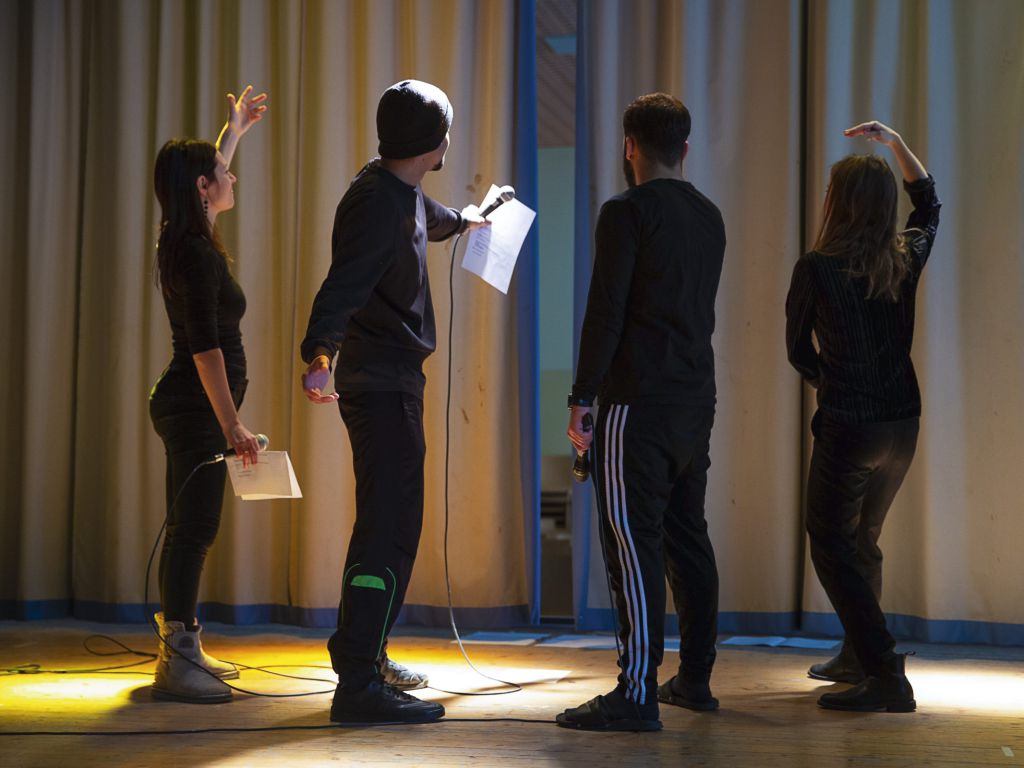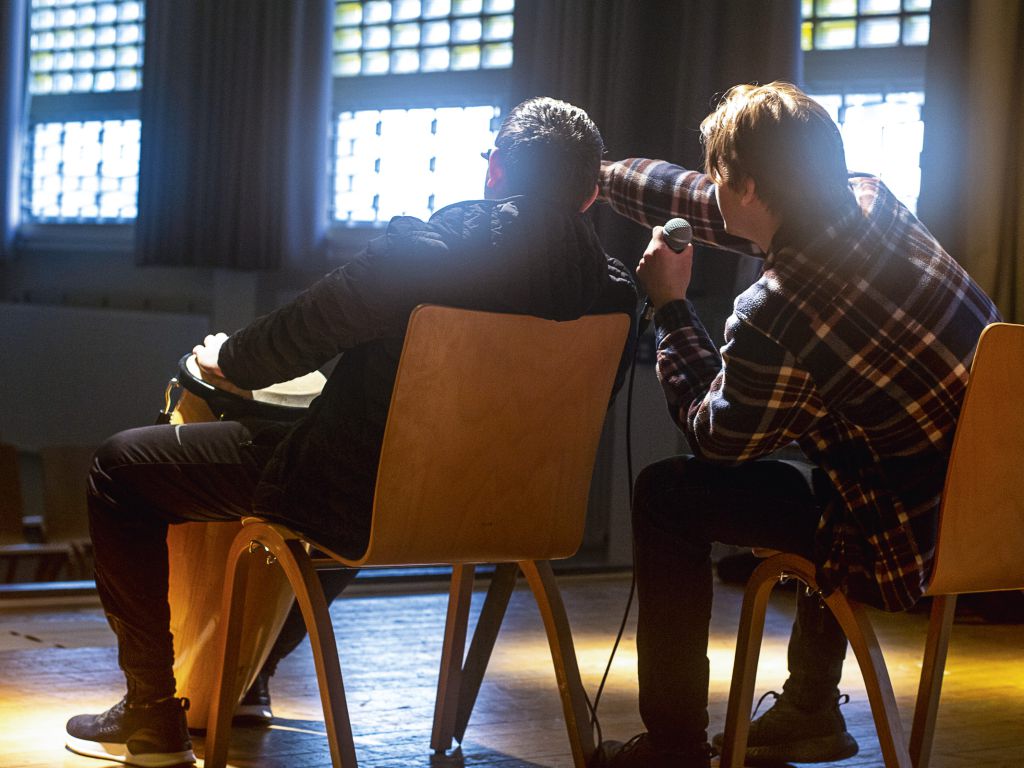As part of the course on Music Mediation/Community Music, itself part of the subject area “Music in Dialogue” at the mdw’s Department of Music Education Research, Music Didactics and Elementary Music Education, this past winter semester saw the project Tschick – ein Held? conducted with inmates at JVA Gerasdorf, a juvenile detention centre in Lower Austria.
This was the mdw’s first project for prison inmates that involved students and extended beyond a mere concert offering. Its catalyst was a collaborative project with the Vienna State Opera in connection with a new production of the youth opera Tschick, based on the eponymous novel by Wolfgang Herrndorf. In the novel, two teenagers set out on a road trip in a stolen car in order to escape their scholastic and social environment.
The workshops held with the young people at JVA Gerasdorf employed various participative approaches aimed at developing an original piece of music theatre by way of mutual dialogue and engagement with the novel’s content. The focus here was on issues having to do with friendship and with “true” heroism. Inspiration was provided by the young inmates themselves and by inputs taken from various stylistic eras that were introduced live—leading to original musical, danced, spoken, and dramatic realisations featuring voices, bodies, and instruments. It also proved possible to appreciatively integrate the young participants’ pre-existing skills like playing the guitar or the saxophone, in some cases reactivating such skills with help from borrowed mdw instruments.

In her reflective essay on this coursework, one student wrote the following:
“With the opportunity to develop warm-ups ourselves and work independently with these teenagers, various perspectives on music (…) were revealed. For me (…), it was exciting to see my colleagues teach and to learn from them and their ideas. It showed me how differently (…) possible avenues of music mediation can take shape and got me interested in putting these things into practice in my own teaching environment. (…) Just how complex and comprehensive music mediation can be and how important the position it occupies in our society is (…) can be seen in things like the feedback we got from a psychologist about the positive social and psychological influence that our project had on the participating young people.” (…). The entire project turned my previous thinking about human ideals and the topic of the penal system on its head. (…) I was surprised at how much we tend to push our society’s darker aspects into the back-most corners of our awareness and hide them there.
Again and again in the conversations on this project, and with additional nourishment from an article quoting a public ombudsperson on youth in the penal system that appeared in the Viennese daily Der Standard at the beginning of the semester, the topics urgently addressed included more than simply justice and the justice system or guilt and punishment. On a personal level, as well, it was impossible for the students to just “set aside” what they had experienced and learned during their work and midday meals together with the prisoners. This is also shown by the following quotation, which allows one to feel just what potential can be unlocked by facing social realities—perhaps especially during one’s studies—in order to grow as a person and as an artist, including with respect to one’s own societal role.

“One very touching thing was a situation with ‘Hans’. Out of the blue, he essentially said: ‘I’d like to have something like that, too. I want to learn to play the keyboard. I’m going to save up and ask whether I can buy one—or I’ll go and buy one when I get out.’ When I more or less reflexively asked him how long his sentence was and he answered ‘eleven years’, I realised just what real problems are. … This course was very valuable to me in a professional and a personal sense. During the pandemic, I’d fallen into a professional crisis and already begun a different course of training—but I ultimately decided against pursuing a new career and in favour of completing my IGP master’s. This course did a lot to positively reinforce that decision, and it’s factored into my present realisation that it was the right choice. Participating in this project (…) affirmed the thoughts I’d been having—which gave me comfort and encouraged me to continue moving forward as an educator, as an artist, and as a person.”
This project concluded with a presentation of the newly conceived music theatre work Wege einer Freundschaft [Paths of a Friendship] before an audience of invited inmates and prison administrators. It was followed by a concert featuring students of the Department of Music and Movement Education/Rhythmics led by Nora Schnabl-Andritsch for all of the inmates and JVA Gerasdorf employees.
Special thanks are owed the students for their great dedication and their effective artistic contributions as well as to the JVA employees, who supported our project’s conduct onsite including the frequently difficult approval processes that this entailed. The JVA’s administrators are currently not in a position to obtain approval for our initiative to facilitate a renewed concert or workshop for its inmates during the current summer semester, which would have aimed to foster certain lasting effects on location. And this difficulty confirmed something else that the article in Der Standard had pointed out: “Concepts for these young people often do exist on paper but are not put into real-life practice—for reasons such as a lack of personnel. This goes for therapeutic and social services to accompany inmates during their sentences as well as for training and leisure offerings.”
The 2023 winter semester is set to witness the launch of the new Master of Arts in Contemporary Arts Practice (CAP), a programe that will provide an opportunity to specialise in Music Mediation/Community Music.

